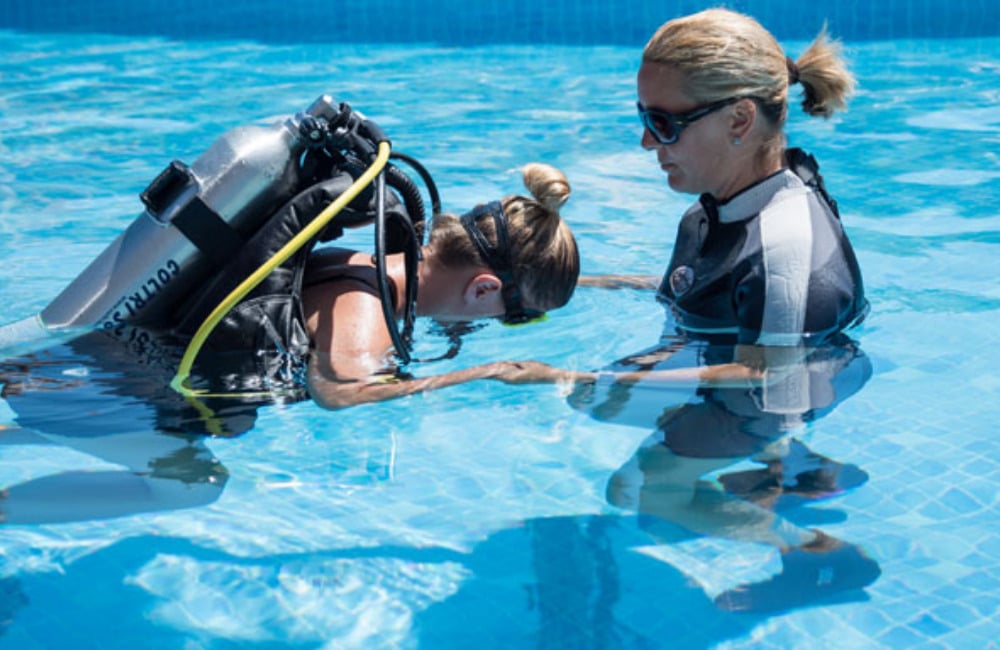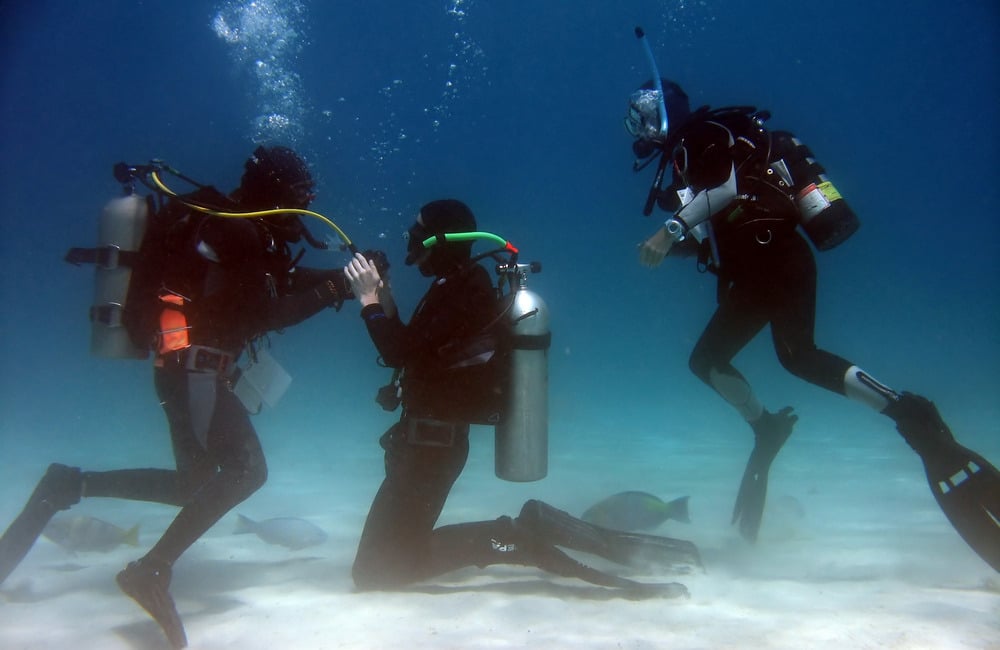Blog
Is scuba diving difficult to learn? Things you need to know
Have you ever wondered what it’s like to explore the deep depths of the ocean? To swim through shipwrecks and coral reefs, discovering a fascinating underwater world full of sea life and colorful flora?
Scuba diving is an amazing way to experience all that nature has to offer, however many may be hesitant as they are unaware of what exactly is required for them learn this skill safely.
So, if you’ve been thinking about learning how to scuba dive but don’t know where to begin, then look no further. In this blog post we will discuss everything involved in understanding whether or not scuba diving is right for you and if so, how demanding learning the sport actually can be.
Definition of Scuba Diving
Scuba diving, a recreational activity that has been growing in popularity worldwide, is a form of underwater diving that involves the use of a self-contained underwater breathing apparatus (SCUBA). With equipment that enables divers to carry their own supply of air and explore the depths of the ocean, scuba diving offers a unique and exhilarating opportunity for adventure and exploration.
However, many people may wonder if scuba diving is difficult to learn. While diving may seem intimidating to some, with the proper instruction and training, anyone can become a competent and confident scuba diver.
With a focus on safety and skill building, scuba diving courses offer comprehensive training to ensure that divers are well-prepared for the challenges and excitement that the underwater world has to offer.
Factors Affecting the Difficulty of Learning Scuba Diving 
Following are the physical factors in the process of learning scuba diving:
Physical Demands
Scuba diving is one of the most fascinating activities that allows you to experience marine life in its natural environment. However, learning to scuba dive requires effort and dedication. Apart from learning the essential skills, it’s also important to be physically fit.
The physical activity in scuba diving may demand mild to moderate exertion, which includes carrying scuba gear, swimming, and diving. Therefore, it is necessary to consult a doctor before enrolling in a scuba diving course.
Additionally, basic physical requirements like swimming skills, strength, and agility must also be considered before starting the training. Therefore, being in good physical health is crucial to learn scuba diving and enjoy it to the fullest.
Psychological Factors
Besides physical factors, psychological factors also play a crucial role in the difficulty of learning scuba diving. Overcoming fears and anxieties is one of the psychological factors that affect learning scuba diving. Fear of water, fear of drowning, and fear of the unknown can all pose a challenge to an aspiring scuba diver.
However, these fears can be addressed by gradually exposing oneself to the water, seeking support from a professional instructor, and practicing relaxation techniques such as deep breathing. Building confidence underwater is another psychological factor that can affect learning scuba diving.
As a beginner, it can be challenging to trust oneself in the underwater environment, breathing through a regulator, and handling the equipment. However, building confidence can be achieved by mastering the fundamental skills, practicing regularly, and diving with experienced buddies. Overcoming psychological barriers to learning scuba diving can ensure a more enjoyable and safe experience.
Skills and Knowledge Acquisition
Learning to scuba dive is a thrilling and rewarding experience, but it can also present challenges that affect the difficulty of acquiring the necessary skills and knowledge. Factors such as prior experience with water activities, physical fitness, and comfort in the underwater environment can impact a diver’s ability to learn and progress.
Additionally, the complexity of the equipment and procedures involved in scuba diving can be daunting for beginners. However, with proper training, practice, and guidance from a certified instructor, these obstacles can be overcome.
1. Learning equipment usage and maintenance
Learning how to scuba dive can be a challenging yet thrilling experience. While it may seem like a simple task, mastering the necessary skills and knowledge of equipment usage, maintenance, diving techniques, and safety protocols requires a significant amount of effort and dedication.
2. Understanding diving techniques and safety protocols
The difficulty of learning dives are affected by several factors, including the varying levels of experience, physical fitness, and overall motivation to learn. It is essential to have a thorough understanding of these factors and how they may impact your ability to acquire the necessary skills and knowledge. By recognizing the various challenges, one can be better prepared to tackle them head-on, ultimately leading to a rewarding and exhilarating scuba diving experience.
Training and Certification Process Overview of scuba diving training agencies
Overview of scuba diving training agencies
Scuba diving can be an exhilarating and awe-inspiring experience. However, before taking the plunge, it is essential to undergo proper training to ensure safety underwater. To become a certified scuba diver, one must go through a course offered by recognized training agencies. These agencies, like PADI, SSI, NAUI, and CMAS, have their unique structures for scuba diving courses.
Structure of scuba diving courses
The courses mostly consist of a mixture of theory and practical sessions, followed by open water diving. During the course, students learn about dive physiology, equipment, skills, and safety procedures.
The training agencies offer various levels of certification, from basic to advanced, to cater to different levels of divers. Proper training from a reputable agency can equip divers with the knowledge and skills needed to enjoy the underwater world safely.
1. Entry-level courses (e.g., Open Water Diver)
To ensure safety and competence, scuba diving courses are structured in a progressive manner that includes both entry-level courses, such as Open Water Diver, and advanced courses and specialties. These courses are designed to provide students with the knowledge and skills necessary to dive safely and confidently in a variety of conditions.
2. Advanced courses and specialties
The entry-level courses serve as a foundation for future diving endeavors, while the advanced courses and specialties allow for specialization in areas such as wreck diving, underwater photography, and deep diving. Professional scuba diving instructors guide students through each course, ensuring that they receive a comprehensive education that aligns with industry standards.
Classroom and theory-based learning
Scuba diving training involves classroom and theory-based learning where you will understand the basic principles of diving, dive equipment, and safety measures.
Practical training in confined water (e.g., swimming pool)
The practical training in confined water, usually done in a swimming pool, helps you get accustomed to diving gear and learn a wide range of diving skills.
Open water dives and certification requirements
Finally, after getting comfortable with the diving techniques, completing a series of open water dives, and meeting other certification requirements, you can earn your scuba diving certification. The certification signifies that you have completed the necessary training to dive safely and responsibly.
Personal Experiences and Perspectives
Scuba diving captures the attention and imagination of many, but only the experienced divers can provide invaluable insights into the world of scuba diving.
Interviews or anecdotes from experienced divers
Through interviews or personal anecdotes, divers share their unique perspectives on what it means to dive beneath the surface and explore the depths of the ocean.
Varied perspectives on the difficulty of learning scuba diving
While some may describe learning to scuba dive as relatively easy, others argue that it can be a difficult and intimidating process. Yet, individual experiences vary, influenced by prior swimming experience, comfort in water, and other factors.
Factors influencing individual experiences (e.g., prior swimming experience, comfort in water)
Factors such as prior swimming experience and comfort level in the water can greatly influence one’s experience. Some individuals may feel right at home in the water, while others may have a fear or discomfort that takes time to overcome. This is why it’s important to take time to determine your comfort level and work at your own pace when swimming.
Common Challenges and Tips for Overcoming Them
For those who love diving, there are several common challenges that you may face underwater. These include equalizing ear pressure, buoyancy control and trim, managing air consumption, dealing with underwater currents and conditions, and psychological challenges.
Equalizing ear pressure
Equalizing ear pressure is crucial and can be achieved by various techniques such as the Valsalva maneuver.
Buoyancy control and trim
Buoyancy control is also key to minimize contact with the reef and avoid damaging it.
Managing air consumption
Managing air consumption is important to ensure that you have enough air to complete your dive and return to the surface safely.
Dealing with underwater currents and conditions
To deal with underwater currents and conditions, it is best to plan your dive accordingly and be aware of your surroundings.
Psychological challenges and tips for overcoming them
Finally, conquering psychological challenges such as anxiety or stress, requires proper training and preparation.
Conclusion
In conclusion, we have covered various aspects of scuba diving, including its appeal and challenges. We have discussed the importance of gaining knowledge and skills to ensure safety while exploring underwater environments.
Scuba diving is a challenging activity that requires physical and mental preparation, but it is also a rewarding experience that offers a unique perspective on the world beneath the surface. Encouraging potential divers to take on this challenge, we must emphasize that it does require dedication and effort, but the reward is priceless.
Whether it’s the thrill of exploration or the peacefulness of drifting weightlessly underwater, scuba diving offers an unparalleled experience that is sure to leave a lasting impression. As professionals in the field, we urge all those interested to continue their pursuit of scuba diving despite the potential challenges, as the rewards far outweigh the difficulty of the endeavor.
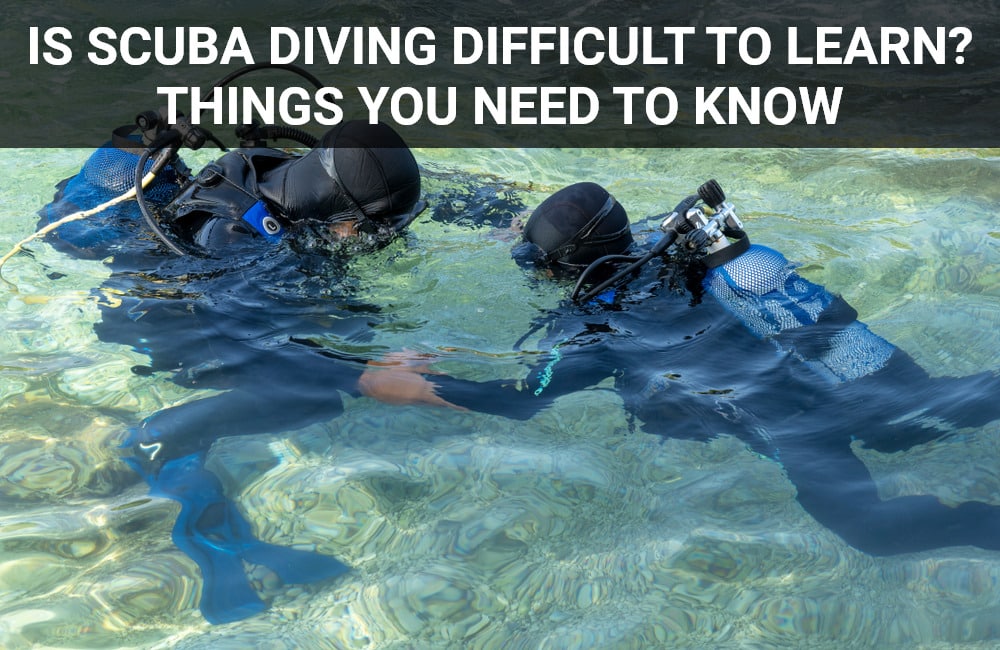
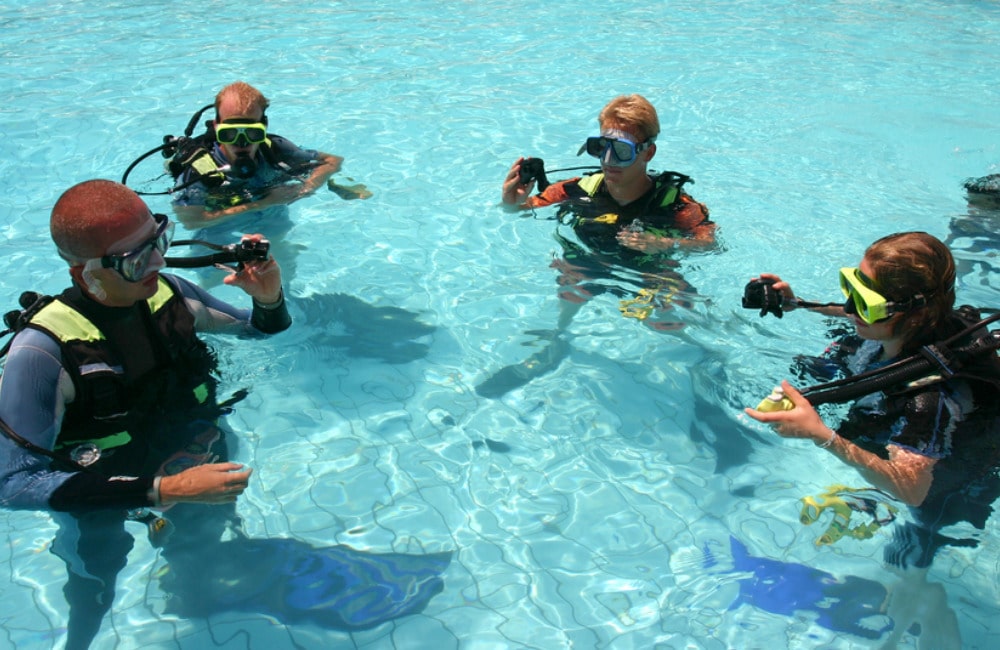
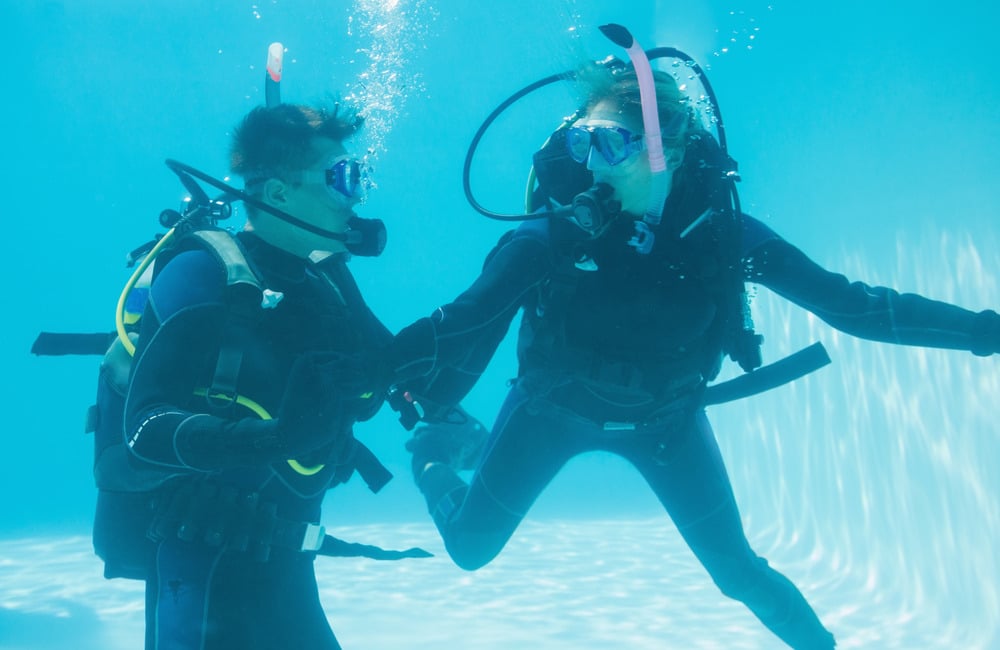 Overview of scuba diving training agencies
Overview of scuba diving training agencies